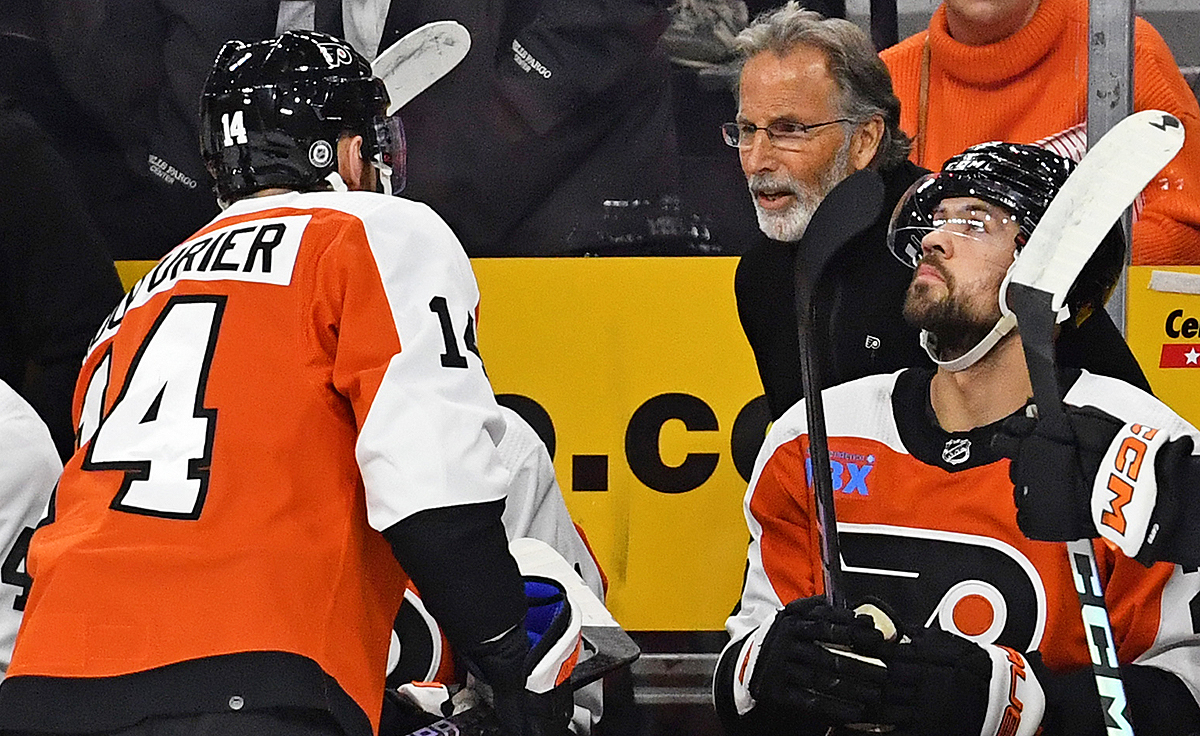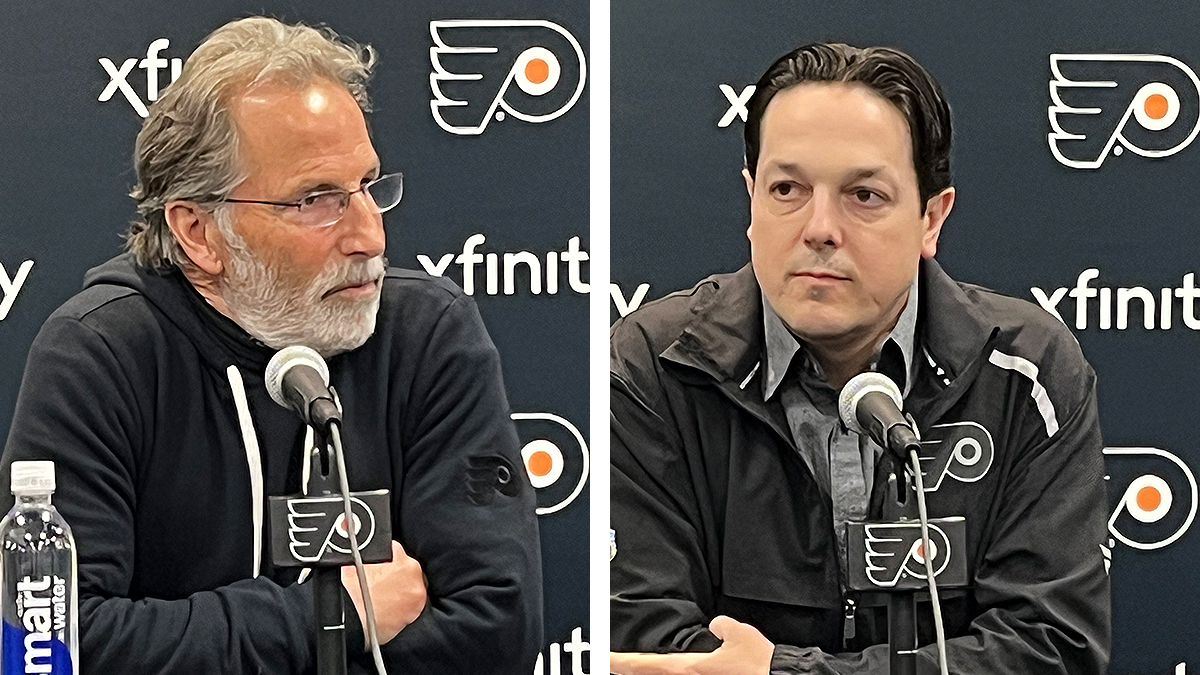Flyers captains from different decades gathered on Thursday night at the Wells Fargo Center. They were on hand to celebrate the franchise's 50th anniversary as part of Captains Night.
In doing so, they offered a lesson or two.
The subject, of course: leadership.
To Dave Poulin, the ‘C' on ones jersey meant more than simply leading a team. Much of the job description was making life easier on the man in charge.
"One characteristic I would look for in a captain is someone that can be a liaison with the coach and act as a buffer at the right time," said Poulin, who captained the Flyers for parts of six seasons (1984-90) and two Stanley Cup Final appearances (1985, 1987). "I laugh because I always think the three most important minutes of a coach's life are the three minutes after he walks out of the locker room. What takes charge of that room? Who says something next? If it's positive or negative. If it's negative, who stands up to that? I think the relationship the captain has with the coach is really important."
The message appropriately met the current events of the club.
Philadelphia Flyers
Complete coverage of the Philadelphia Flyers and their rivals in the NHL from NBC Sports Philadelphia.
In Year 2 of Dave Hakstol's jump to the NHL ranks, life hasn't been particularly easy on the Flyers' head coach. He's steered through a roller coaster of wins and defeats, lineup changes, a porous defense and goalie troubles.
And, most notably at the moment, he has benched his fair share of players, whether the decision was popular or not. Uniquely, that's where a captain can help, like Poulin said. Lightening the weight on a coach's shoulders when unpleasant moves are made or things are said.
Flyers captain Claude Giroux has been there in support of Shayne Gostisbehere and Travis Konecny, who have been sent to the press box a combined five times this season. On Thursday, Gostisbehere, last season's Calder Memorial Trophy (top rookie) runner-up, served his third benching, while the prized rookie Konecny was handed his second (see story).
After morning skate fresh off a 5-1 loss, Gostisbehere did his best to say all the right things, as Giroux and captains do so often.
"I don't know what to think of it right now," Gostisbehere said. "I'm definitely not happy. When we lose like that, it's tough. It's a team loss.
"You've got to change things up when you lose that bad. I guess it's my turn. I could have done a lot better things defensively. It's a learning curve right now."
Lou Angotti, the Flyers' first-ever captain in 1967-68, said being a leader was never showing up the boss. No matter what, a captain had the coach's back.
"It's great for the press to get all these guys coming out making all these quotes and everything, but we never did anything like that," he said. "If we weren't happy with the coach, or we weren't happy with the way things were going, we never said anything. Nobody said anything, even the great players didn't do it. It just was not something you did. You didn't need anybody to talk for you because nobody talked. Nobody expressed themselves. If you didn't like what was going on, that was your problem."
Chris Pronger played his final three NHL seasons in Philadelphia, leading the Flyers to the 2010 Stanley Cup Final in his first with the orange and black.
He preached patience on Thursday - a tune that would likely resonate with Hakstol, Gostisbehere and Konecny.
"I think with how the game is played and how it's evolved, I think it's patience," Pronger said. "It's understanding the schedule, the process of getting your team better with each and every game, being patient with results. And ultimately it's building each and every game on top of one another and getting that full buy-in from the group."
Supporting the coach's motives plays a part.
"We used to laugh - we used to say the coaches actually speak a different language," Pronger said, "and when he left, here's what the interpretation was."



